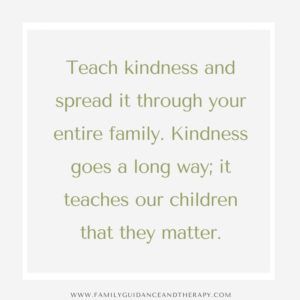When our children are the incessant targets of an angry parent, they may ask a heartbreaking question, “Why does daddy (or mommy) yell all the time?” This is not only difficult words for us to hear, but it also raises some real concerns, and it is a call for help.
How a Parent’s Anger Impacts a Child
Younger children experience intense stress when they are the target of a parent’s anger, yet they also may not question it, and they do not realize that they would question it if they were an adult, nor that the parent’s constant output of anger is verbally and emotionally abusive.
As a young child, children assume that their parents know best. In some situations, the wrathful parent may yell due to poor anger management, but the child processes this as, “I do not know what I did, but I must have done something terrible!” The young child absorbs the blame regardless of their innocence. An older child may learn to ‘go deaf’ to the parent’s yelling, meaning, they no longer blame themselves for their parent’s anger, but it is still very detrimental to their well-being.
The angry parent may feel justified in yelling, especially when they are in the throngs of fury, which may lead them to think in narcissistic terms, “I am not the problem here!” “If they would only listen, I would not have to yell!”
This is their attempt to shift blame onto the children, and this is never healthy.
The effects of persistent parental anger show up in children as aggression, non-compliance, lacking empathy, poor overall adjustment, delinquency, depression, social alienation, anger management issues, all of which can continue into their adult life and can then lead to spousal abuse, inability to hold down a job (difficulty in getting along with peers and supervisors), and it may also manifest as conditions such as codependency.
5 Ways to Help Children Navigate Angry Parents
We encourage anyone with an anger issue to seek professional help…if this is you, the help that you receive will ultimately also help your children.
Here are 5 ways you can help children navigate their life with angry parents:
1.Teach kindness and spread it through your entire family.
Kindness goes a long way. It teaches our children that kindness is something that people do when they like someone, and that compassion and kindness are not one up opportunities to do something nice, rather, caring is something we consistently do in life. Consider having a monthly family kindness day. Show your children what it means to be kind to each other, how everyone is rewarded (mentally and otherwise), and that it can (and should) spread from your home to your extended family, friends, and the community.
2. Talk about anger.
Do honestly share your view with your child that their parent has an anger problem. Share that the parent says mean and accusatory things because they have an issue (i.e., like an illness) with controlling anger. Ask your child to share the words that they have heard the angry parent say. This is your opportunity to invalidate these words in your child’s mind.
Your role in this talk is to remain calm, communicate in a non-accusative tone, yet openly show that you understand the situation and that the angry parent’s words are just their words, and that these words are not true to who the child is.
Consider having regular one-on-one ‘talk time’ with your children. Ensure each of your children knows that they can request this time with you at any time.
3. Develop rituals that bring joy to the family, and that everyone can participate in.
This will meld character and strength into the family and will teach your children that joy is a healthy thing (a good feeling) that they can relate to.
Share with your children how you find joy in life. Remember, you are a role model and mentor that your children view as the expert in life.
Ask your children to tell you what brings joy into their life. Teach your children that they can find ‘their happy place’ even when they are not feeling joyous.
4. Develop habits of gratitude.
When we are feeling depressed, appreciation can feel unattainable. We can feel as if the world lacks anything good, but there is always something to be grateful for. Teach your children how to recognize the small things in life, and to express gratitude accordingly. This will help them stave off down feelings.
Consider creating a daily family gratitude moment, or perhaps a jar that stores their words of gratitude. What are you grateful for today? One word! The entire family can contribute to this ‘gathering of gratitude.’ When your child is having a bad day, ask them to reach into the jar and pull out one word of gratitude. The goal is to model the word of gratitude. This can help divert your child’s attention (with some meaningful fun) and will help them to learn flexibility.
5. Get outside and exercise.
This could be a weekly or daily family walk, or perhaps a bicycle trip around the neighborhood. While the family is outside and exercising, include acts of kindness and an attitude of caring. Exercise and fresh air will physically and mentally lift the entire family.
The kindness aspect of the outing will continue to strengthen your children’s mindset that people take care of people, and that these family experiences diminish worry and sadness.
Get Help for Your Family
We could have listed 6 ways that you can help your child, with #1 being to get professional help.
Professional anger management for the parent is crucial for your child’s well-being. We understand that you may feel stuck in parental circumstances with a spouse, or perhaps a parent that your children live part of their life with, and if this parent does not acknowledge that they have anger issues, they may not agree to any type of help. Getting help may entirely rest on your shoulders in this situation, and we hope you consider getting help for your children as well as yourself.
Your family is your heart. We understand that when any member of a family hurts, the whole family hurts too. We know that regardless of your circumstance or events, your family deserves wellness and happiness each and every day.
Call 619-600-0683, ext. 1, text us at 619-607-1230 or schedule an appointment online. We have both virtual and face-to-face sessions available for your child. We can also support you in helping your child by refining your parental approach.

